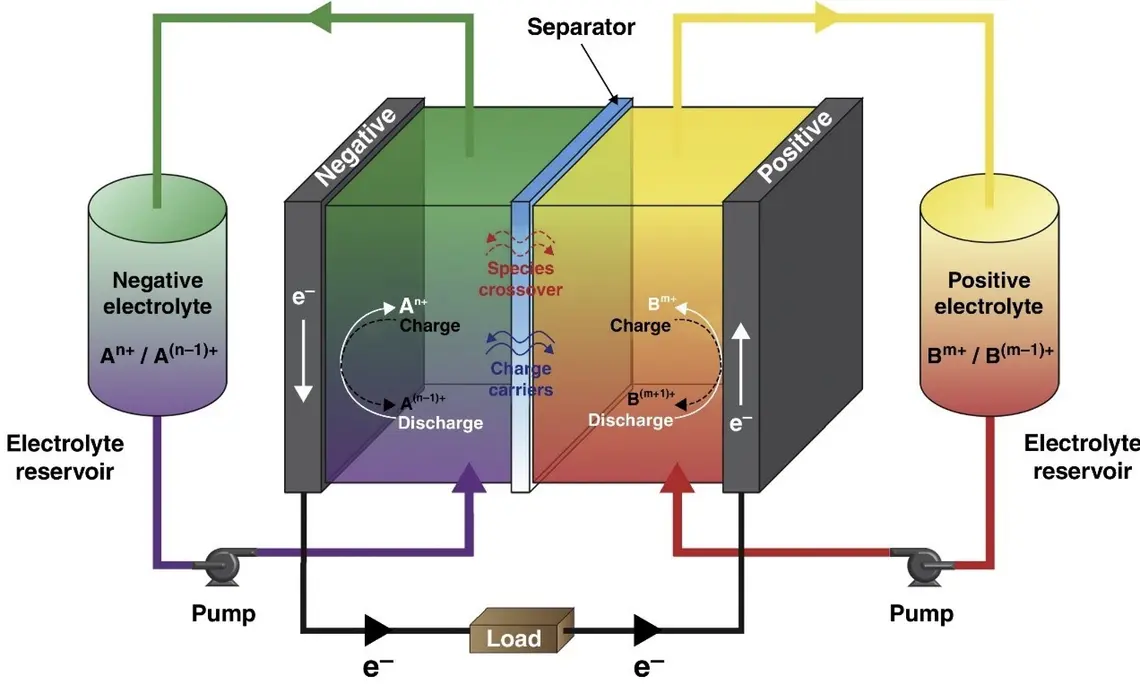Redox Flow Battery Campus (FlowCamp)
Description
FlowCamp is a research and training project funded by the European Union’s Marie-Sklodowska-Curie programme. FlowCamp involves 11 partner organisations from 8 different countries, who will recruit 15 PhD students for the project.RESEARCH in FlowCamp aims to improve materials for high-performance, low-cost next-generation redox-flow batteries.Renewable energy sources like wind turbines require large-scale, stationary energy storage systems to balance out fluctuations in energy generation. Redox-flow batteries are considered to be one of the most promising solutions. The recruited fellows will develop materials (membranes, electrodes, electrolytes, catalysts, sealing materials) and macrohomogeneous models for three next generation RFBs (hydrogen-bromine, organic and zinc-air systems). They will then upscale the new systems to prototype level, and validate them using the cutting-edge battery testing facilities available for the prestigious German-funded RedoxWind project at Fraunhofer ICT.The new RFB technologies can be combined in energy storage systems tailored to a wide variety of application scenarios, with lower cost, longer service life and higher efficiency than conventional (e.g. Li-ion) storage devices.High-quality individualised TRAINING in scientific and complementary skills, and a structured programme of training units, will provide the fellows with unique interdisciplinary competence in electrochemistry, material science and cell design / engineering, as well as an overview of different redox-flow battery technologies and their implementation at prototype level. FlowCamp will consequently go far beyond existing electrochemical training, in a field with a high and growing research demand.
Key Data
Projectlead
Project partners
Fraunhofer-Gesellschaft zur Förderung der angewandten Forschung e.V. / Institut für Chemische Technologie; Amer-Sil SA; Bar-Ilan University; Centre national de la recherche scientifique CNRS; Elestor BV; Hungarian Research Centre for Natural Sciences; Jenabatteries GmbH; Johnson Matthey plc; University of Chemistry and Technology Prague; Universität Stuttgart / Institut für Maschinenelemente
Project status
completed, 09/2017 - 09/2021
Institute/Centre
Institute of Computational Physics (ICP)
Funding partner
Horizon 2020 / Projekt Nr. 765289
Project budget
3'796'578 EUR
Further documents and links
Publications
-
Upscaling of reactive mass transport through porous electrodes in aqueous flow batteries
2024 Wlodarczyk, Jakub Karol; Schärer, Roman Pascal; Friedrich, Andreas; Schumacher, Jürgen
-
Mass transport limitations in concentrated aqueous electrolyte solutions : theoretical and experimental study of the hydrogen-bromine flow battery electrolyte
2023 Wlodarczyk, Jakub; Baltes, Norman; Friedrich, K. Andreas; Schumacher, Jürgen
-
Towards optimized membranes for aqueous organic redox flow batteries : correlation between membrane properties and cell performance
2023 Tsehaye, Misgina Tilahun; Mourouga, Gaël; Schmidt, Thomas J.; Schumacher, Jürgen; Velizarov, Svetlozar; Van der Bruggen, Bart; Alloin, Fannie; Iojoiu, Cristina
-
Estimation of activity coefficients for aqueous organic redox flow batteries : theoretical basis and equations
2022 Mourouga, Gaël; Chery, Déborah; Baudrin, Emmanuel; Randriamahazaka, Hyacinthe; Schmidt, Thomas J.; Schumacher, Juergen O.
-
Towards rigorous thermodynamics in aqueous flow batteries : measuring activity coefficients with differential scanning calorimetry
2021 Mourouga, Gaël; Baudrin, Emmanuel; Courty, Mathieu; Schmidt, Thomas J.; Schumacher, Jürgen
-
An enhanced 1-D model of a hydrogen-bromine flow battery
2019 Wlodarczyk, Jakub; Cantu, Brenda; Fischer, Peter; Küttinger, Michael; Schumacher, Jürgen
-
A multicomponent diffusion model for organic redox flow battery membranes
2019 Mourouga, Gaël; Sansone, Caterina; Alloin, Fannie; Iojoiu, Cristina; Schumacher, Jürgen

